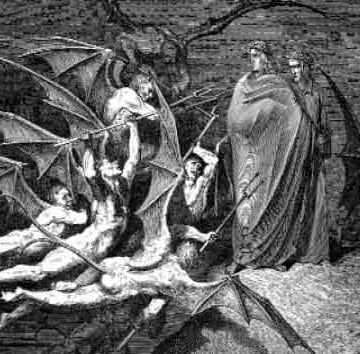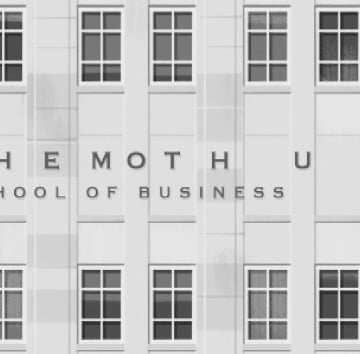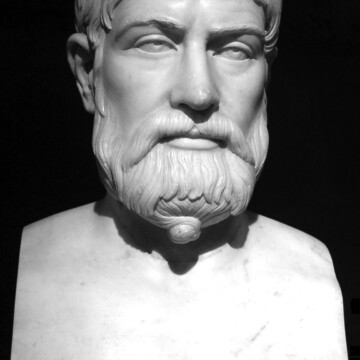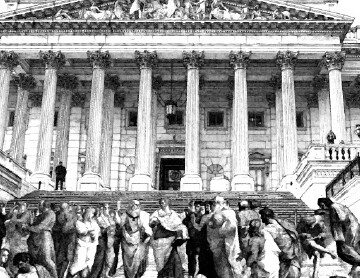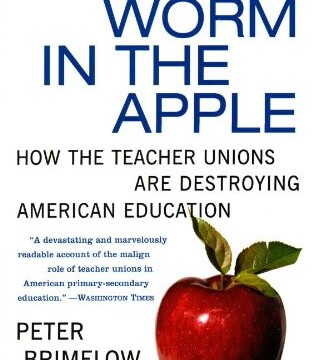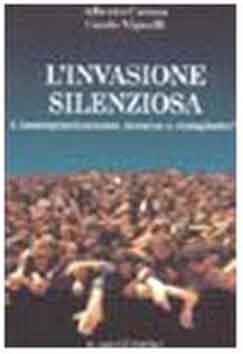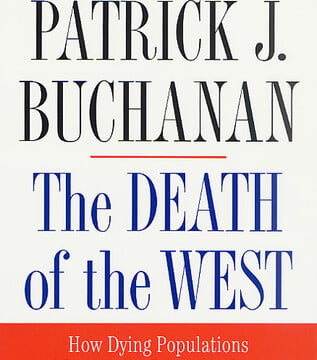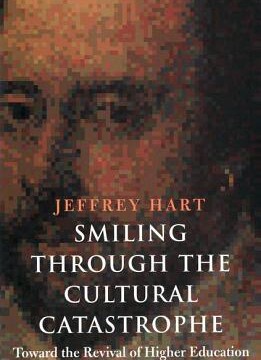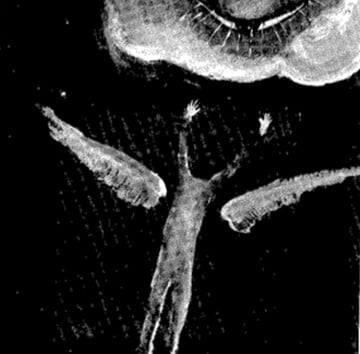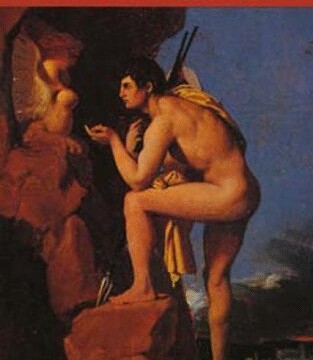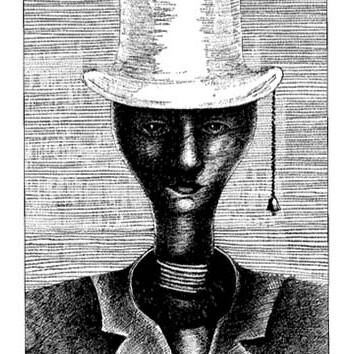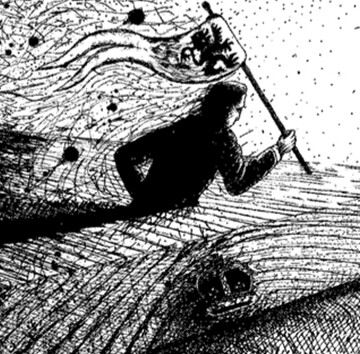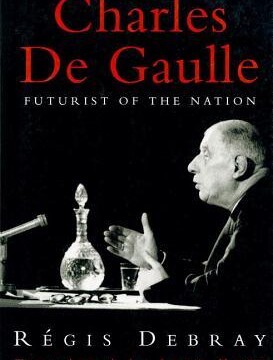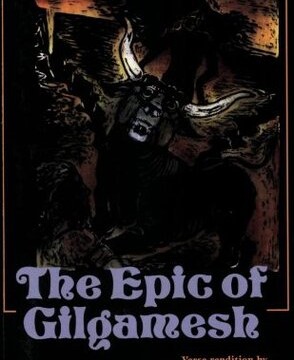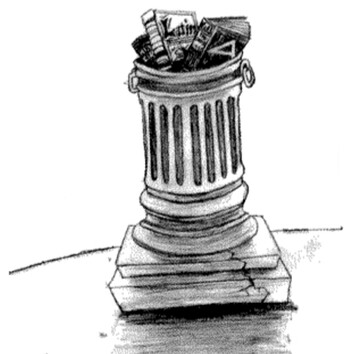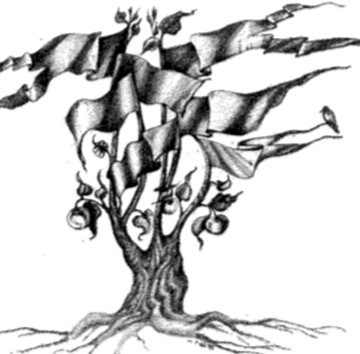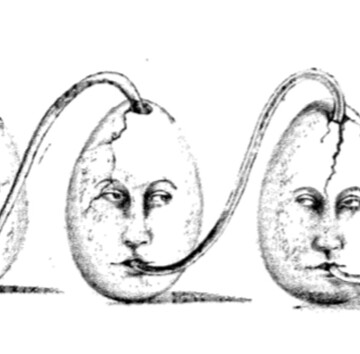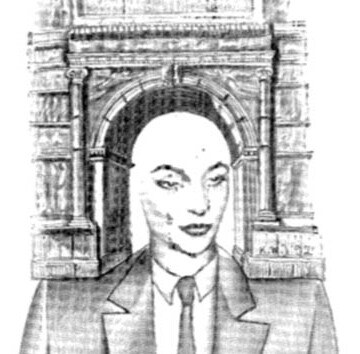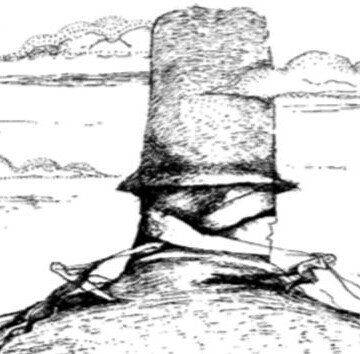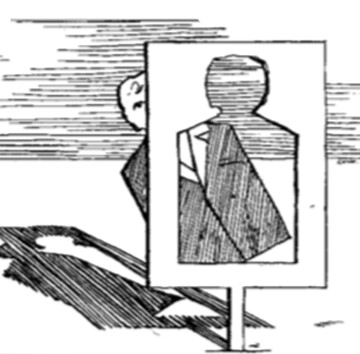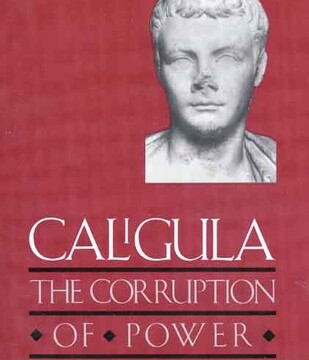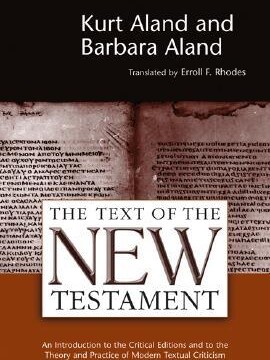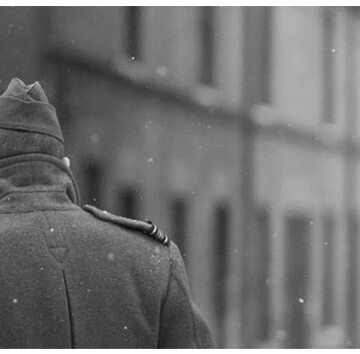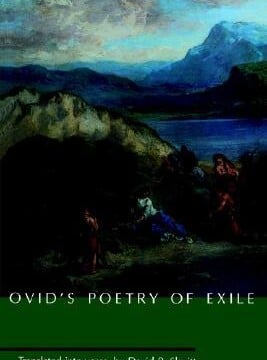From the August 1989 issue of Chronicles. A nation lives by its myths and heroes. Many societies have survived defeat and invasion, even political and economic collapse. None has survived the corruption of the picture it has of itself. High art and popular art are not in competition here. Both may and do help citizens...
Author: E Christian Kopff (E Christian Kopff)
Immigration and Citizenship: Ancient Lessons for the American People
Americans have been debating immigration since the Founding era. Congress passed the first Naturalization Law in 1790, which it amended and fine-tuned in 1795, 1798, and 1802. These acts experimented with different residency requirements before naturalization. From the start, children of U.S. citizens were citizens, even if born abroad. For the Founders, where citizenship was...
Italy’s Donald Trump
Politicians and businessmen do not always see eye to eye. In ancient Rome the political elite, the Senatorial Order, squabbled with the wealthy Knights of the Equestrian Order. Cicero advocated a “Concord of the Orders,” where senators and knights would work together against the political ambition and military might of Crassus and Julius Caesar. Neither...
Bill O’Reilly: the Big Dog Who did not Bark
Sherlock Holmes famously noticed the importance of a dog not barking. In the aftermath of the FOX Republican Debate there has been no discussion of the absence of FOX News (FNC) star Bill O’Reilly. Before the debate O’Reilly commented that his aggressive style of interviewing would be inappropriate to a news situation, where the object...
Why Christians Need the Classical Tradition
One of the most intriguing paradoxes of Dante’s Divine Comedy is the pervasive presence of pagan classical antiquity in what was meant to be (and is) Europe’s greatest Christian poem. Dante juxtaposes and interweaves classical and Christian, from Virgil’s appearance in the poem’s first canto to the homage to Aristotle (“the love that moves the...
Last of the Romans
Andrew Crocker did not attend his commencement exercises at Michigan State University in East Lansing on May 2. He was home dealing with family matters. So he missed the awarding of two honorary doctorates. Shirley Weis, a graduate of MSU’s College of Nursing, received a doctorate of science as the first woman and first nonphysician...
Vocation and the Humane Economy
I once sat on the honors orals of an economics major who had applied a standard mathematical model to immigration. The mathematics and data collection were well done, but the thesis was premised on the assumption we can understand immigration by analyzing a sufficiently large sample of economic data with a reputable mathematical model. Were...
Last of the Romans
Andrew Crocker did not attend his graduation exercises at Michigan State University in East Lansing on May 2. He was home dealing with family matters. So he missed the honorary doctorates. Shirley Weis, a graduate of MSU’s College of Nursing, received a doctorate of Science as the first woman and first non-physician to serve as...
A Guiding Presence
Bruno Gentili passed away in Rome on January 8. He was Italy’s most distinguished scholar of ancient Greek language and literature. His contributions ranged from composing a popular textbook of Greek lyric poetry and the basic introduction to Greek meter for Italy’s classical high schools to editing scholarly editions of the texts of the Greek...
Sequester Semester 2013
In the summer of 2011 the US Congress voted to raise the national debt ceiling on the condition that a “super committee” of six democrats and six republicans would meet and hammer out a way to reduce the national deficit. If they could not come up with a plan by November 2012, automatic tax...
Plato and the Spirit of Modernity
In C.S. Lewis’s The Last Battle the world of Narnia begins to dissolve and disappear. The Pevensie children are confused and frightened, but Professor Kirke, now Lord Digory, reassures them that the Narnia and the England they had known were only shadows compared to the reality they were about to experience. Then he mumbles to...
Long Day’s Journey Into Ignorance
“There is no use in excellent laws, even ones approved by all active citizens, if the citizens have not been habituated to and educated in the city’s way of life.” —Aristotle, Politics 5.9 In Céline’s nightmarish masterpiece, Journey to the End of the Night, the hero reaches America in a slave ship. He escapes, but...
When Immigration Becomes Migration
“San Pietro si fece la barba prima per sé e poi per gli altri.” (“Saint Peter shaved himself first and then other people.”) —A proverb from Lazio, near Rome Americans believe that they are unusual. They use the word “unique” as a term of praise so often that it has lost its status as a...
Pat Buchanan, Conservative Revolutionary
“An Liberalismus gehen die Völker zugrunde.” —Moeller von den Bruck Pat Buchanan’s exciting new book demonstrates clearly and convincingly that the population base of Western civilization is disappearing as Europeans and Americans are no longer reproducing themselves even at replacement rate and thus are being supplanted, both in their traditional homelands and in the New...
Retelling History
A few years ago, David Denby wrote about his experiences as a student in Humanities I-II, the “Great Books course,” at Columbia College. In Smiling Through the Cultural Catastrophe, Dartmouth professor Jeffrey Hart “teaches,” for the general reader, his own version of the class, the distillation of decades of teaching and reflecting on the story of...
The Final Solution of the Philological Problem
“With him the love of country means Blowing it all to smithereens And having it all made over new.” —Robert Frost Paul de Man’s life was “the classic immigrant story” (according to James Atlas). He arrived in New York in 1948 from his native Belgium and worked as a clerk at...
Front Page News
The National Front’s mayoral victory in the southern French village of Vitrolles, on February 9, was front-page news in Europe and is important for Americans. The NF candidate had been its brilliant deputy chief, Bruno Mégret, who barely lost the 1995 election to Socialist Jean-Jacques Anglade. Vitrolles has a large North African population and 19...
Confirmation and Indoctrination
Institutions survive because the old teach the young. The Quakers who founded Haverford and Swarthmore colleges in Pennsylvania had to admit that the Holy Spirit could use the help of explicit teaching to back up His direct conversation with the human heart. For ages the Church has asked the young to memorize its basic teachings...
The Bankruptcy Crisis
Personal bankruptcies are being filed at a rate 25 percent higher than in 1995, and if the current rate is maintained, the absolute numbers, estimated at 1.1 million, will surpass the record of 900,000 set in 1992. The situation surprised the New York Times (August 26, 1996) because normally high bankruptcy rates occur during recessions....
Scholarship and Bricolage
Suppose it is true that we are living in a post-Christian age. On what basis shall we live our lives, make moral decisions, create and destroy? I suppose that, if Christianity were to disappear as the guiding moral force in the United States, it would be replaced by another religion, probably Islam. People like Ernest...
Losing Their Significance
Sir James Goldsmith in Le Piège (Paris, 1993) eloquently defended the nation and regional free trade against internationalists advocating global free trade. He provoked a formal answer from the European Commission in October 1994. A month later the English version of The Trap appeared, followed by a torrent of contradiction and polemic from various academics,...
Postmodernism, Theory, and the End of the Humanities
For more than a decade now, Christopher Norris has been writing clear and informed discussions of where deconstruction and other versions of critical theory in the humanities are headed. The clarity of his accounts has been a public service, since few of the philosophers and literary and cultural theorists he discusses write clearly. Stanley Corngold...
Arguments Against Global Free Trade
Sir James Goldsmith’s The Trap (New York, 1994) is the clearest introduction to the arguments against global free trade and its consequences for the nation. The English translation adds helpful notes and bibliography to the French original, Le Piège (Paris, 1993). In some places, however, rearrangement and omission change Goldsmith’s message. The last chapter of...
A Free-Minded
Douglas Young was a tall man, six feet six inches; with his beard he looked like a Calvinist Jehovah. At St. Andrews, he acquired the nickname “God” by eavesdropping on a political discussion about the Balkans. (In the 1930’s, the Balkans were full of angry ethnic factions, fighting and killing one another.) The group was...
The Future Belongs To Us
“Reaction is the consequence of a nation waking from its illusions.” —Benjamin Disraeli In the 1960’s, when those of us who are now “of a certain age,” as the old-fashioned French expression goes, were young, we used to talk about the Revolution. I remember one excited student at little Haverford College, on the Main Line...
Lessons From France
On the French nightly news for Monday, June 12, the anchor’s face was so grim that, at first, I thought the French forces in Bosnia had suffered serious losses. But, no, he was reporting on the French municipal elections, the first round of voting for mayors of cities with populations of 30,000 or more. The...
Role Models and Poetry
Societies, as much as individuals, need role models. For good and for ill, our cultural tradition has been influenced by the figures of Achilles and Odysseus, placed at the center of our moral imagination by Homer almost three millennia ago. The shaping power of the tradition is clearest where there has been no direct influence,...
Our Classical Roots
On January 6, 1816, Thomas Jefferson wrote a letter to his state legislator, Colonel Charles Yancey. As we might expect, Jefferson’s letter contains reflections of general interest on many topics, ranging in this case from the dangers of a large public debt and paper money to the advantages of beer over whiskey. Near the end...
Foundation of Meaningful Existence
Christmas is the time when the bureaucrats and judges who rule the United States launch their perennial war on Christianity. A recent skirmish in Boulder, Colorado, may give a hint of future directions the war may take. Boulder is a secular university town with several government agencies and “nonpolluting” computer industries, run politically by a...
Park Ranger Columbo: The Vince Foster Affair
A scene from an unpublished teledrama: The Oval Office of the White House. Behind the desk, the President of the United States. He speaks into an intercom. Bill Clinton: Are there any more appointments today? Voice from the intercom: There is just one more. The park ranger in charge of the investigation into poor Vince...
Real Men’s Studies
The negative critique of American education has grown from a mere trickle back when Albert Jay Nock delivered his lectures on Theory of Education in the United States at the University of Virginia in 1931 into a roaring flash flood. When the sound and fury of the various Jeremiahs of American education have ceased echoing...
Commentary on the Gallic Culture War
When the right took over control of the French Assembly this spring, with an enormous majority, they left economic matters in the hands of Prime Minister Eduard Balladur and proceeded to rewrite the French code of nationality and to restrict severely naturalization and asylum, responding to the desires of the vast majority of French citizens,...
Mimesis and Perjury
A tidal wave of intellectual, and sometimes financial, fraud is hanging above the happy tropical village of American academia, threatening to crash down on it and sweep it away into the off-shore reefs. The danger has a distinctly different appearance if observed from the Olympian heights where physical scientists view the approaching storm with Lucretian...
Margaret Fuller in Rome
“Oh Rome! my country! city of the soul! The orphans of the heart must turn to thee!” —Lord Byron, Child Harold’s Pilgrimage What is the greatest lost work of ancient literature? Was it Arctinus’ epic Aethiopis, which told of the battles of Achilles against Penthesilea, the Amazon Queen, and Memnon, black King of the Ethiopians?...
Ignorance and Freedom
“In a state of civilization,” opined Thomas Jefferson, it is not possible to be both ignorant and free. In Query XIV of his Notes on the State of Virginia Jefferson laid out his plan for public education. Every free man would learn “the most useful facts” from ancient and modern history. The “best geniuses” would go...
The American Crisis Without Alternative
The most important event of the waning years of the 20th century is the collapse of the last of the great national socialist powers whose rise and fall dominated the generations after World War I. The Axis easily defeated their liberal and imperial opponents, but were crushed by the national socialist regimes of the Soviet...
Truth in Empire
He arrived at the highest seat of power late in life, after a career that most considered inappropriate for a world leader. He consolidated his popularity by the successful invasion of a small island. Although his influence on the structure of government was momentous, he was mocked as sleepy and forgetful. His enemies said his...
Philosophy in an Old Key
In the ancient world no one could talk or read too much about philosophy. Wealthy Athenian nobles, Plato and Xenophon, for instance—even Roman emperors, like Marcus Aurelius—lived for the hours they could devote to philosophical discourse. The pagan’s conversion to philosophy was as important to him as conversion to Christ was for a Christian. When...
The Veterans of Future Wars
It was 1936 and the Depression still held America in its grip. Few doubted that a new European war was coming, and Japan and China had been fighting in the East for years. Most Americans were opposed to participating in another futile European war. The President had begun his successful campaign for the White House...
Deplored in Public Print
Guns and rape are often deplored in the public prints as two of our nation’s worst plagues. One may be the cure for the other. Denver, for instance, is at the mercy of a serial rapist. It is increasingly clear that the police, if not exactly helpless, cannot cope with the massive violence that is...
Ancient Texts and Modern Readers
“Begin at the beginning,” was the King’s suggestion to Alice. “Go on to the end. Then stop.” Kurt and Barbara Aland of the Institute for New Testament Textual Research in Münster, Westphalia, Germany, begin their book on the New Testament with Erasmus’ editio princeps of 1516, the first printed edition. They then survey the printed...
The Final Solution of the Philological Problem
“With him the love of country means Blowing it all to smithereens And having it all made over new.” —Robert Frost Paul de Man’s life was “the classic immigrant story” (according to James Atlas). He arrived in New York in 1948 from his native Belgium and worked as a clerk at the Doubleday bookstore in...
Roman Reflections of America
William L. Vance, of Boston University, had the brilliant idea of describing the relationship of citizens of a new nation to the civilization of a very old city. In the first volume, Vance concentrates on Americans’ reactions in literature and art to five important classical sites: the Roman Forum, the Colosseum, the Campagna, the Pantheon,...
Dance to the Music of Time
The struggle to keep poetry alive is a game of tag-team wrestling, and the greatest poets play their matches with the poets of ancient Greece and Rome. We all know it for Latin. Plautus and Vergil are centones of Greek verse, their originality hidden, for some, by passage after passage taken directly from Greek poetry....
Raising a Ruckus
I remember sitting in an airport bar with a few bemused travelers listening to the ads on TV. “America’s ignored crisis,” Tom Brokaw blared at us. “Children in poverty. Most people below the poverty line are children.” First one of us and then the rest broke into gufFaws. “What this country needs is a national...
Passion and Pedantry
“Lord, what would they say Did their Catullus walk this way?” —W.B. Yeats William Butler Yeats’s picture of the scholar is not a pretty one (“All cough in ink. All wear the carpet with their shoes.”) and literature does not give us many scholarly heroes. Most literary pedants are like George Eliot’s Casaubon; boring, impotent...
Arms and the Man: Clint Eastwood as Hero and Filmmaker
A nation lives by its myths and heroes. Many societies have survived defeat and invasion, even political and economic collapse. None has survived the corruption of the picture it has of itself. High art and popular art are not in competition here. Both may and do help citizens decide what they are and admire. In...
The Ethos of Freedom
“That’s just rhetoric!” So we dismiss statements we have little respect for. Readers of Tacitus’ Dialogue on Orators will remember that the Roman historians thought that eloquence is a sign of a free state. There was a time when the speeches of Burke and Canning, of Daniel Webster and Abraham Lincoln were studied in school...
A Free-For-All
A lot of Americans are worried about the way universities are teaching our children. During the second weekend of November 1988, equally concerned members of the National Association of Scholars gathered at the old Roosevelt Hotel in New York City. There are clearly quite a few articulate, thoughtful scholars in our colleges and universities on...
Pax Through Strength
In the general collapse of humane studies that marks the declining decades of the 20th century, a few areas continue to produce important scholarship. One of those fields is Roman history, especially the history of the Roman Republic. Emilio Gabba in Italy, Christian Meier in Germany, Ernst Badian and Togo Salmon in North America, to...



